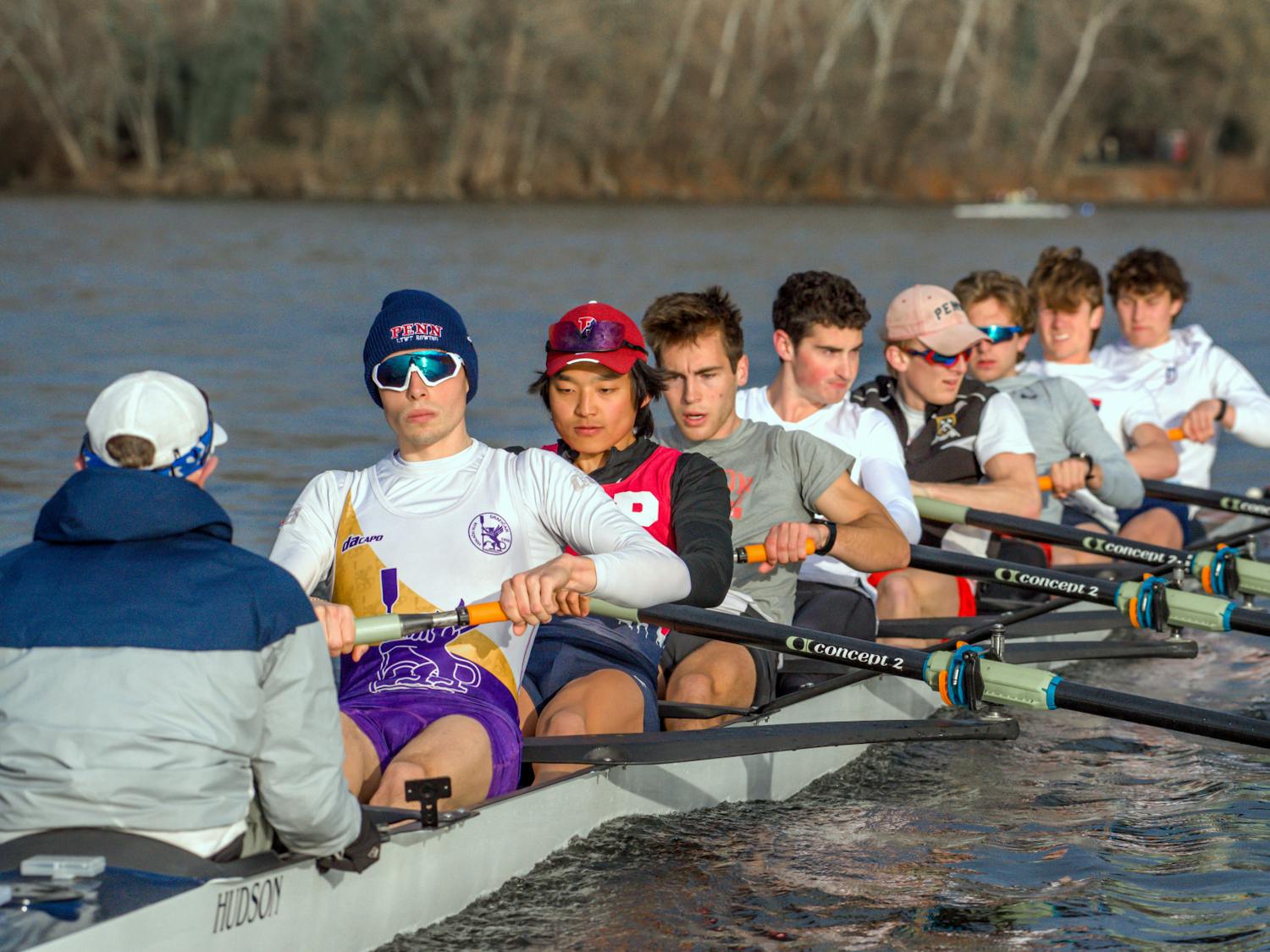In 1956, Ted A. Nash left the Detroit Boat Club in a single shell in an effort to win the boathouse Sugar Bowl, awarded to the rower who traveled the farthest in a single day.
Fifty-three miles and more than 13 hours later, Nash — an Army and Marines veteran and a 1960 Olympic gold medalist — was experiencing the worst pain of his life. The skin on his palms, sheared completely off by the oars’ friction, was nailed to the wall in honor of his achievement.
A winner of one varsity and five junior varsity national championships during his time as a Penn rowing coach, Nash now offers a 66-mile challenge to the Quakers heavyweights and his two alma maters, Boston University and the University of Washington.
The event has softened in the intervening 54 years, as each school is encouraged to attempt the challenge as a team. For the third consecutive year, Penn’s senior class completed the journey together.
Given that the longest Penn had ever previously rowed in practice or competition was 18 consecutive miles, the seniors found that finishing a relative marathon was extremely rewarding.
“It’s the most fun you never want to have again because you’re with your senior class who you’ve been tight with over the past three years and going through adversity,” captain Piero Russo said. “That’s what this sport is about.”
This year, the relatively large 10-person Class of 2011 took turns participating in an eight-man sweep. But the 10-hour-and-15-minute journey was not without some drama.
After about 25 miles, Penn’s coxswain failed to see a log under the water, and the resulting collision caused the boat’s rudder to detach.
“We completely lost [the rudder] and had no way to steer,” Nick Barnes said. “We just zig-zagged all the way home.”
The time taken to procure a new skeg and repair the boat delayed the team for about a half hour.
Since the rowers had to conserve their energy over a long distance rather than exert full effort over a short sprint, the tradition has little relevance to competitive conditions, and Russo said that the challenge is more mental than physical.
“You think about it halfway through — you’re like, ‘Wow, I’m at 30-something miles. This is ridiculous. What am I doing?’” Russo said. “You turn your mind off and just keep rowing.”
The coxswains, who switched halfway through the challenge, had a more relaxing time, as they were relinquished from their technical coaching duties and told to simply steer, tell stories and play music.
Although the challenge is not a formal race, the seniors took home unforgettable memories, a team bonding experience and a $1,000 donation from Nash to Penn Crew.
The Quakers are expecting the challenge to become a permanent annual tradition, as they are also ordering a Cup to display in the boathouse with inscriptions of participants’ names and finish times.
“You do tons of things which are more grueling towards your body in a shorter distance that prepare you better for the events,” Russo said. “But I think any event like this that brings together both your leaders and seniors on the team is beneficial for the team going forward.”
The Penn seniors will get a chance to put their newfound camaraderie to the test this Saturday, when they head to Poughskeepie, N.Y., for Penn’s first regatta of the fall.








